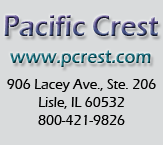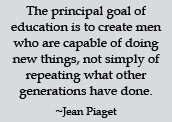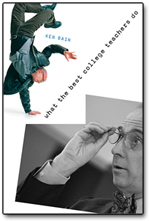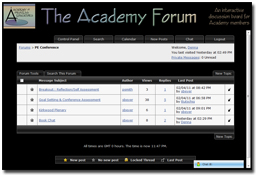|














|
 |

The Academy of Process Educators continues to increase its
membership and work to drive transformational change in education by generating,
disseminating, and archiving research based on the principles of Process
Education, including the sponsorship of a yearly Process Education Conference.
Academy membership is open to anyone passionate about Process Education
and interested in engaging, supporting, and collaborating with a community of
similarly dedicated educators. Visit the Academy online at:
www.processeducation.org.
The Academy of Process
Educators is a registered non-profit corporation.
|
|
Book
Chat
Do the guiding principles of Process
Education align with
What the Best College Teachers Do?
What ideas can immediately be
implemented in our classrooms and course
designs?
We'll be in touch over the coming
months as the Academy reads through the
book and then join Jim Morgan (Texas
A&M) and Melissa Desjarlais (Valparaiso
University) as they lead a book chat at
the
2011 Process Education Conference.
For more
about What the Best College
Teachers Do, by Ken Bain, visit
the
Harvard University Press website.
Resources include: About the Author,
Reviews, Table of Contents, and a link
to purchase a copy.
Also
available for purchase at
Barnes&Nobel.com
and
Amazon.com
|
 |
|
|

Click
to visit the conference website!
|
|

 |
We're pleased to announce an interactive
member's forum! Available through the
Member's area of the Academy website (user
name and password required), the forum is the
ideal way and place to collaborate with other
Academy members about current research, Academy
business, conference planning, etc. If you're
already an Academy member, why not take a few
minutes and register today?
If you're not an Academy member, have you
considered what you
might be missing?
|
|
|
Research
Updates
|
Reliability and Concurrent Validity of
an Analytic Rubric for Writing Across
Disciplines
Investigators Kathy Burke and Judith
Ouellette (SUNY Cortland), Cy Leise
(Bellevue University), and Tris Utschig
(Georgia Tech) have received approval
from the SUNY-Cortland IRB regarding
compliance with research standards and
ethical principles for a study of the
inter-rater reliability and concurrent
validity of the revised
Writing Across the Disciplines Rubric.
Three different types of papers will be
scored by four raters using the Academy
rubric as well as the
Written Communication VALUE Rubric
available for public use by the AAC&U
(Association of American Colleges and
Universities). Contact with a
representative of the AAC&U clarified
that our plans are consistent with the
uses intended for their rubric; having a
second rubric in the design will add
evidence of concurrent validity to our
main goal of gathering reliability
evidence. The goals for the next few
months include distributing numbered
sets of papers to the four readers,
collecting the data, completing the
statistical analysis, and preparing the
report for publication in the next issue
of the International Journal of Process
Education.
The larger intent of this research
project is to establish an empirical
design that can be generalized to other
Academy measures in the future.
|
|
A
Comparative Analysis of Reflection and
Self-Assessment
Melissa Desjarlais (Valparaiso
University),
Peter
Smith (Saint Mary's College, retired)
Abstract:
Reflection is a personal process that
can deepen one’s understanding of self
and can lead to significant discoveries
or insights while self-assessment
involves establishing strengths,
improvements, and insights based on
predetermined performance criteria. In
this paper we will perform a comparative
analysis of reflection and
self-assessment, clarifying the
differences in definition,
methodologies, and results. We will
model a familiar situation using both
processes to illustrate the need for
doing reflection and self-assessment and
to differentiate their separate
purposes. In the process, we will
elucidate some tips for doing reflection
and self-assessment as well as deciding
when to do one or the other, and also
discuss ways to evaluate their
effectiveness.
|
|
The Transformation of Teaching and
Learning: 14
Aspects
Denna Hintze-Yates, Steve Beyerlein
(University of Idaho), Dan Apple
(Pacific Crest), Carol Holmes
Abstract: While calls for reform in
education are arguably as old as the
enterprise of education itself,
there is a new sense of urgency
accompanying the reports of those
who study the economic and cultural
impacts of education, at all levels.
This article offers a framework for
understanding and responding to both
internal (largely academic and
pedagogical) and external (largely
economic and cultural) pressures for
positive transformation in teaching
and learning. Fourteen aspects of
educational cultural change are
labeled, defined, and characterized
in terms of historical tendencies
and future directions that hold
promise for better fulfillment of
society’s expectations and needs.
For each aspect, a core set of
modules is identified from the
Faculty Guidebook, linking that
aspect to the larger body of Process
Education scholarship. Meaningful
descriptors for recognizable stages
of transformation within each aspect
are proposed from this analysis.
Each aspect is then illustrated
through examples typifying student
and faculty behavior, as observed in
faculty development institutes,
workshops, and classroom teaching on
the part of the authors. Three
broadly applicable tips are also
given for managing affective,
practical, and research issues
associated with moving to
increasingly transformed practices
within each aspect. The finished
product is packaged in a new online
learning object that is currently
undergoing usability testing. The
article concludes with an
exploration of potential future uses
for the learning object.
|
|
|

|
|
2011 Mid-Year Academy Meeting: A
Report
Kathy Burke (SUNY Cortland), Cy Leise and Victor
Harmes (Bellevue University),
Marie Racine (University of District of
Columbia), Peter Smith (St Mary's
College-retired),
Steve Beyerlein (University of Idaho), Dan Apple
(Pacific Crest), Marie Baehr (Coe College), and
Al Rowe (Kirkwood Community College) gathered at
the exquisite setting for our 2011 PE Conference
—
The Hotel at Kirkwood Center. This is a
four-star facility, professionally
supervised and student-run, that is a
centerpiece of Kirkwood's program for
hospitality
education. The meeting covered two full days
(1/7-1/8). A full day was spent assessing and
collaborating on papers under development for
the 3rd edition of the
International Journal of Process Education.
These included evolution of the Transformation
of
Education table that many of you saw at the 2009
Conference (Hintze-Yates, Beyerlein,
Apple, and Holmes), distinction
between processeses of reflection and
self-assessment (Smith and Desjarlais),
classification of life enrichment skills
(Leise), and profile of
ecological leadership (Harmes).
A good portion of the second day was dedicated
to planning engaging sessions as
well as reviewing logistics for the 2011 PE
Conference which we intend to be our best
attended, most luxurious, and most
transformational yet. Considerable time was
spent on organizing a plenary session with
Kirkwood faculty on
Transforming from an Enrollment-Centered to a
Student Success-Centered Organization.
This is an exciting initiative motivated
by Kirkwood's president and widely endorsed by
faculty/staff. The goal of the session is to
identify key barriers and tipping points
in realizing this ambitious goal. Many
take-aways and session-induced insights are
expected. The conference center is positioned
between the Community College and a K-12
educational complex that is nationally
recognized for its creative pedagogy
and high level of student achievement. A number
off-site parallel session options are planned so
that participants can see these innovative
learning environments and educational practices first-hand.
These include culinary clinics, math
and science labs, and middle school/high school
studios. The mid-conference
evening social will be an art museum in downtown
Cedar Rapids. A guest
speaker on
Transformational Learning Through Art
is planned along with an
opportunity to network and examine works by
local artists using this framework.
Points in the strategic plan were reviewed and
updated. Special attention was
given to collaborative scholarship among Academy
members.
|
|
Membership (A Reminder)
Remember: If you
did not attend the PE Conference 2010 and have
not paid your membership dues for the year, your
membership has expired. To renew your
membership,
simply click to visit the Academy Store.
|
|
|
|
|
|
![]()


